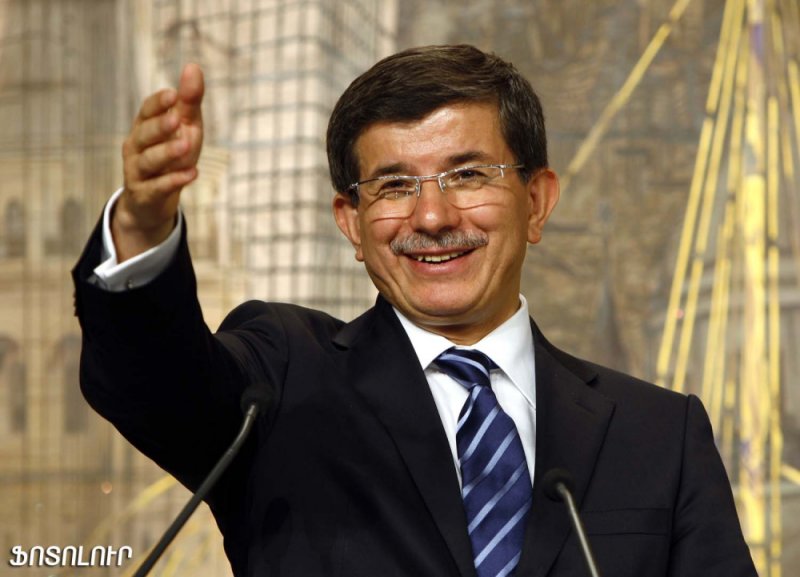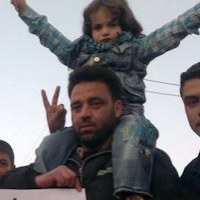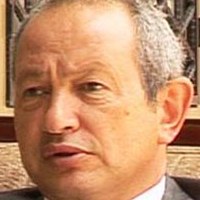![]()
Tue, Sept 28, 2010 | Al-Hayat | Interview by Raghida Dergham | Article by CrethiPlethi
Foreign Minister of Turkey Says Turkish Relationship With Israel Might Be A Permanent Problem
On thursday, Turkish Foreign Minister Ahmet Davutoglu said that the relationship between Turkey and Israel might be a permanent problem, because Turkish civilians were killed during Israel’s raid on the Mavi Marmara.
In an interview with London-based newspaper Al-Hayat, Ahmet Davutoglu said that
“It might be a transitional problem, it might be, but it might be a permanent problem. Why? For the first time our civilians were killed,” [at the flotilla]. And “therefore we will not forget that our citizens were killed by another army. This is a matter of principle for us, not transition, not tactical matters. This is a matter of principles for us.”
In an earlier interview with the same newspaper, Mahmoud Abbas has said that
“the relation between Turkey and Israel are in the final analysis a transitory problem, because basically, the contacts, agreements and fundamental relationship is going on and then, they will pretty much resume.”
But Ahmet Davutoglu made it clear that Turkey will not back down and is still demanding apologies from Israel before relations can be normalized.
“The Israeli side knows what we are expecting from them… There is no mediation between us and Israel and we don’t need such a mediation. Why? Because we made it clear what we expect from Israel and they know what to do.”
Spanish Foreign Minister Miguel Moratinos offered to play a role in fixing the relationship between Turkey and Israel while Turkey would be the primary country playing the role between Syria and Israel in terms of regenerating or restarting the track. But Ahmet Davutoglu said that
“Many friends want to contribute but it doesn’t mean they are mediating and we don’t need such a mediation. But all parties, like Miguel Moratinos, he’s a very close friend of us and he’s well known in the region, and he’s a man of good intentions to help all the processes. He can do whatever he wants to contribute. But for us, we don’t need a mediation, because we made our demands very clear.”
During the interview Davutoglu apparently wasn’t asked and didn’t mention anything about the role Turkey has played during the Gaza Flotilla. For example, the lack of cooperation with Israel inspite of numerous requests by the Israeli government to prevent the Flotilla of challenging the naval blockade of Gaza and seeking a confrontation with the IDF. Israel stated at forehand that the Gaza Flotilla could dock at Ashdod harbor and the flotilla’s humanitarian goods would be transferred to the Gaza Strip after inspection accompanied by representatives of the Flotilla. It therefore seems that the Islamist AKP government, knowing the true intentions of the IHH activists, deliberately adopted a cautious approach, thus consiously directing an incident with Israel.
When asked what Turkey demanded from Israel in relation to the Gaza Flotilla incident, Ahmet Davutoglu said that Turkey demanded
“A formal apology, because there’s a crime. There’s a crime … before or after [the end of the Ban-Ki-Moon’s Commission]. But if they want to improve our relations, they know what to do.”
On the current status quo with Israel Ahmet Davutoglu said that
“We do have diplomatic relations but there is no official relations in the sense, there is no official contact now, our ambassador withdrew. No military cooperation. There is no ongoing military cooperation. You should ask to them. There is no military cooperation at this moment. Our space is closed to Israel’s military airplanes. Our ambassador is back to Ankara, we withdrew our ambassador and he is still in Ankara. These are some measures. Since 31st of May until now, there is no any official visit from Israel to Turkey, from Turkey to Israel.”
The implication of all this is that without an apology, there’ll be no improvement of the Turkish-Israeli relationship and no resumption of the (indirect) Turkish role on the Syrian-Israeli negotiations. And all of this pending on a formal apology from the Israeli Government. This apology, however, will not happen, because the Israeli Government’s point of view is that it stands in their rights based on International Law concerning the blockade of Gaza as well as the raid on the Mavi Marmara.
“It depends on the Israelis’ attitude,” Davutoglu said during the interview. “An apology is an indication of change in Israel’s attitude. Therefore, it is important and so is compensation. There’s a crime, 9 civilians were killed in international waters. Somebody must pay and be accountable for that crime.”
The Turkish Foreign Minister Ahmet Davutoglu recently had a meeting with the Foreign Ministers of Syria, Jordan and of Lebanon and discussed the formalities of establishing an economic free zone.
“In June, during Turkish-Arab forum, at the margin of the Turkish-Arab forum, these four countries’ Ministers of Foreign Affairs, we declared that these four countries will establish an economic zone of free visa and free trade. And, afterwards, we prepared the ground and today, we took certain decisions. One, these four countries will eliminate all visa requirements, in fact, eliminated already in this period. There will be free trade agreement with all the countries, we had it now, there is free trade among all, and in four sectors, trade, transportation, energy and tourism, these 4 countries will have meetings in the next two months, in December, we will review it, and in January, we will declare an economic zone between these four countries based on cooperation in trade, tourism, transportation and energy. So, for the first time in our region, there will be such a grouping based on the economic interdependency and we will develop certain projects to connect these four countries to each other. And this economic zone, area of cooperation, will be open to other friendly countries if they want to join in,” he said.
Israel is not considered a friendly country by Ahmet Davutoglu when asked if Israel could join this economic zone.
“I said friendly. There is no peace between Israel and Syria. Without peace, it will be difficult, but in the future. I meant especially Iraq, Saudi Arabia or other countries,” Davutoglu said.
The four countries are aiming to develop a long-term strategic partnership creating a zone of free movement of goods and persons among the countries based on existing bilateral agreements. This could also mean a serious set-back for the war on terrorism in the region, which of course will have the attention of Israel’s Government even more when a Palestinian State is formed as a result of the peace negotiations between Israel and the PA or UN Resolution 1515. [CrethiPlethi.com, Oct 02, 2010]
An independent Palestinian State (with the 1967 borders and East-Jerusalem as capital) would of course be considered as a friendly state by the four key players in the economic zone, thus making it more easy for terrorists and weaponry to infiltrate right upon Israel’s borders and cities, just as Hizballah did in Lebanon and Hamas in Gaza.
This economic zone will in any case further expand to a military zone as well, and as a consequence, this Turkey-Iran-Syria-Hizballah-Hamas-bloc will be a direct threat to Israel”s security and survival in the future. Turkey already deepened it’s ties with Syria early this year, opening the border between the two countries and training the special forces of the Lebanese Army (LAF). [CrethiPlethi.com, Febr. 12 , 2010]
And this quadripartite mechanism will be open to the participation of all the other brotherly and friendly countries in the region except Israel.
He also said that he believes Syria is not involved in the Hariri assassination in Beirut, but still endorses the international Tribunal investigating the assassination and its findings.
“Syria is a great friend of Turkey. As today, Turkey, Syria, Jordan, Lebanon, all the states, we were together. And, from the very beginning, Syrian authorities told us, there is no linkage between Syria and this assassination and we believed in the words of Syrian leadership. But I don’t think that Syrians will be against finding the killer of Rafik Hariri, so I don’t think this is a problem.”
Israel is a big stumbling block to peace in the Middle east, according to Ahmet Davutoglu. While Turkey has a vision of peace in the Middle East, this vision isn’t shared by Israel, he said.
“First of all, mediation itself is not objective. Mediation is a tool and an instrument. The objective is achieving peace. We mediated between Israel and Syria. Personally, I was the mediator, after Prime Minister (Tayyeb) Erdogan, Prime Minister (Ehud) Olmert, and President Bashar Al-Assad (agreed). We had several meetings, and we continued this in order to achieve a vision of peace. Then one party, in this case Israel, did not respect that vision, and attacked Gaza, when we were very close to making peace. After that, our relation has deteriorated. So we are following a policy of principles, and here it depends on Israel. If they come to the policy of peace again, we can have a role, but if they do not come to this position and if they continue to escalate the tension, then of course, there will be no meaning to continue such a mission of mediation.”
On the subject of Iran, Ahmet Davutoglu said that Turkey is going to comply with the Security Council resolution sanctions, although still against the sanctions, but they will not implement unilateral sanctions by US, by EU or others.
“what we are trying to achieve is, as I said in the beginning , a zone of peace, prosperity, stability in this region. This is our objective. In this region, there is no room for nuclear weapon, in this region, there is no room for sanctions, blockades, in this region, there is no room for blockade like in Gaza. In this region, there is no ethnic, sectarian violence.
…We work very hard with the International community and with Iran to resolve the nuclear program, the nuclear issue, with peaceful means. Therefore, we worked and reached to an agreement. So that agreement was not a gesture to Iran or to anybody, but that agreement was an attempt to resolve this issue. We are very clear in Turkey, we are against nuclear weapons here or there. We want a nuclear free Middle East, including Israel or Iran, we want to solve these issues by diplomatic means. Coming to Security Council sanctions, since we worked hard. Why did we work? In order to prevent sanctions.
Of course, we will comply. Although we said no, and still we are against sanctions in our region, there is a UN resolution based on Chapter 7 and we will comply, we will adapt ourselves. But we are not supposed to adopt unilateral sanctions by US, by EU, by Korea, by Japan, it cannot affect our bilateral relations.”
The Turkey’s Islamist-rooted Government, in power since 2002, once acted as a friend of Israel. Pondering the words of Foreign Minister Ahmet Davutoglu, it seems almost impossible that this AKP Government will come to normal relations with Israel again in the future. We can only hope for a change of regime when the next elections take place in Turkey.
You can read the whole interview (in english) here.



 RSS
RSS











Foreign Minister of Turkey Says Turkish Relationship With Israel Might Be A Permanent Problem | #Israel #Turkey #Islamism http://j.mp/a50FDv
Foreign Minister of Turkey Says Turkish Relationship With Israel Might Be A Permanent Problem | #Israel #Turkey #Islamism http://j.mp/a50FDv